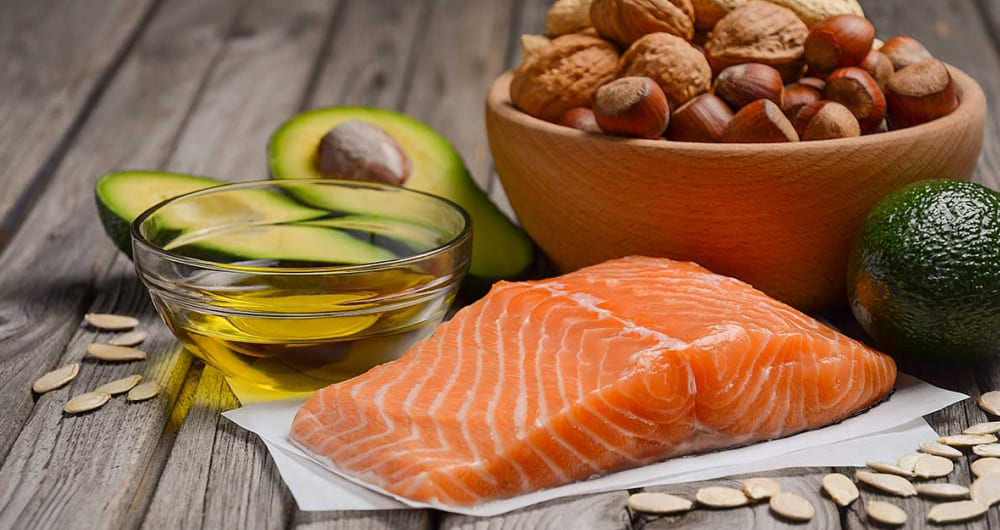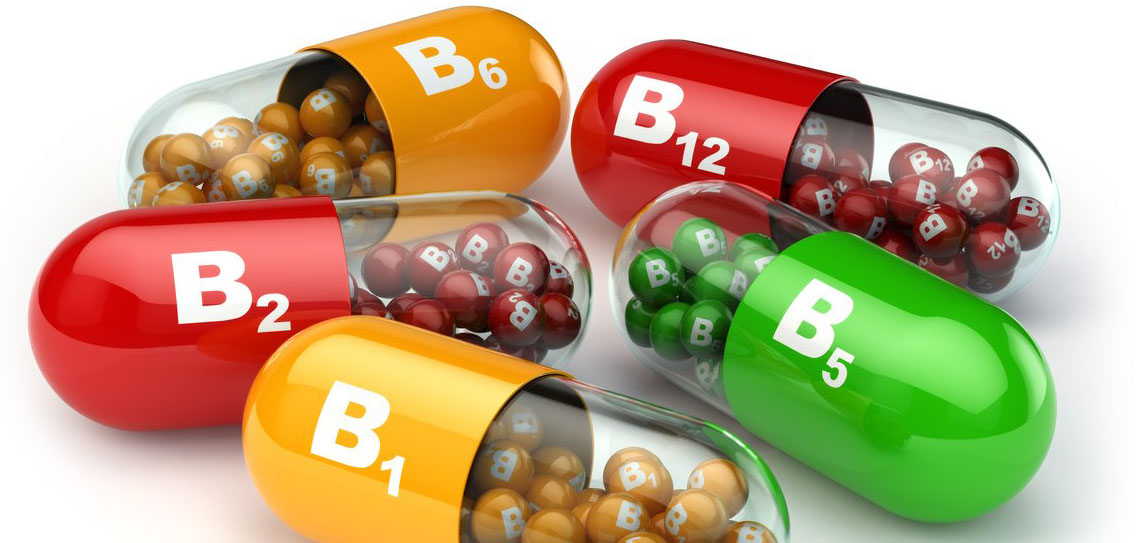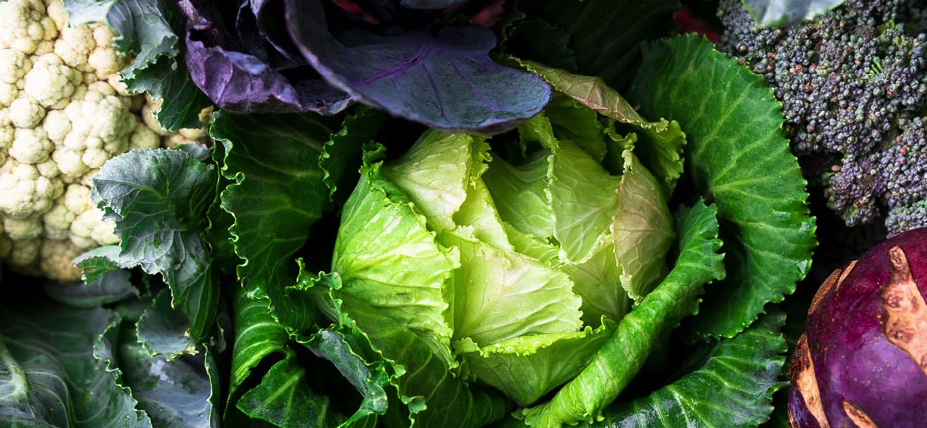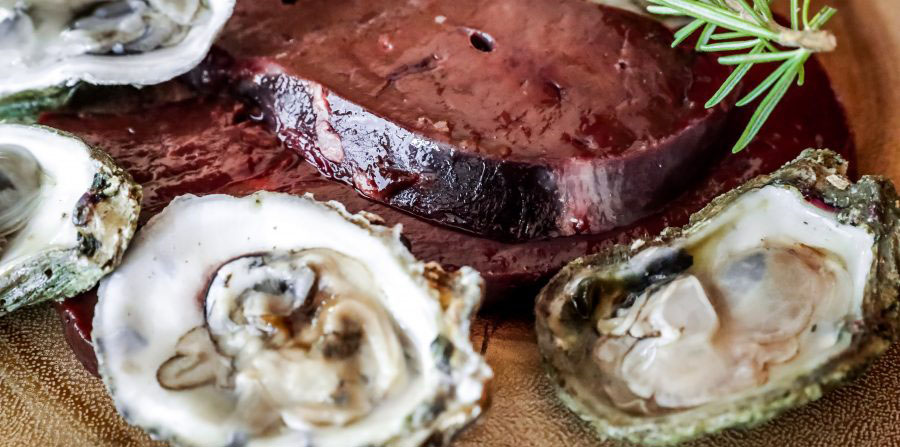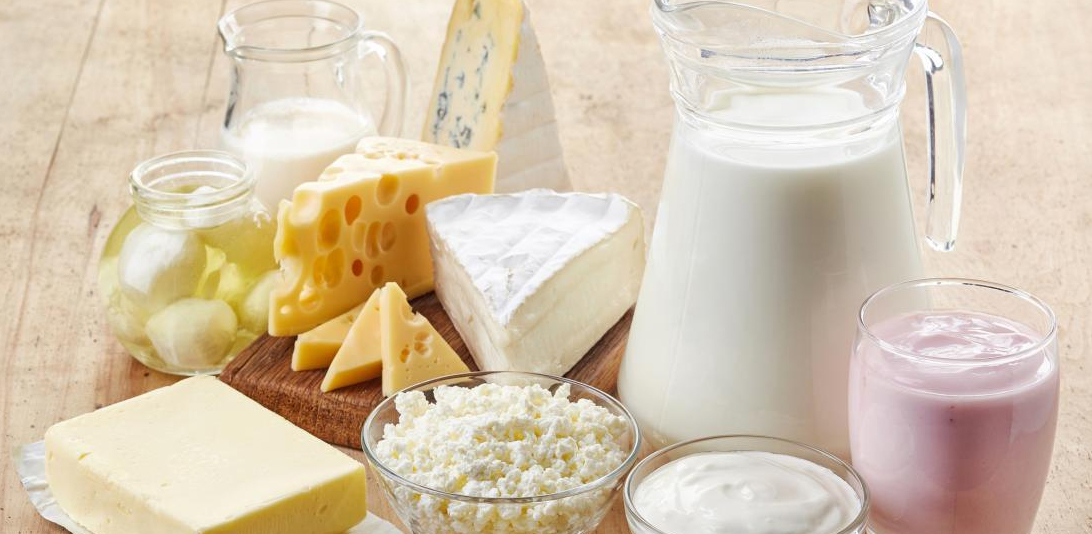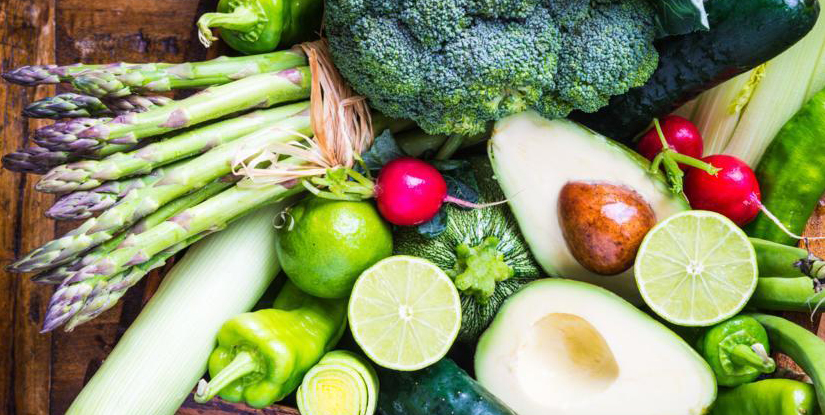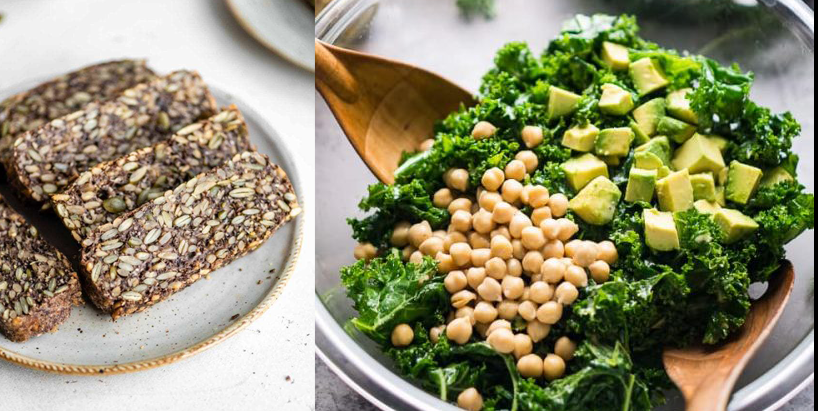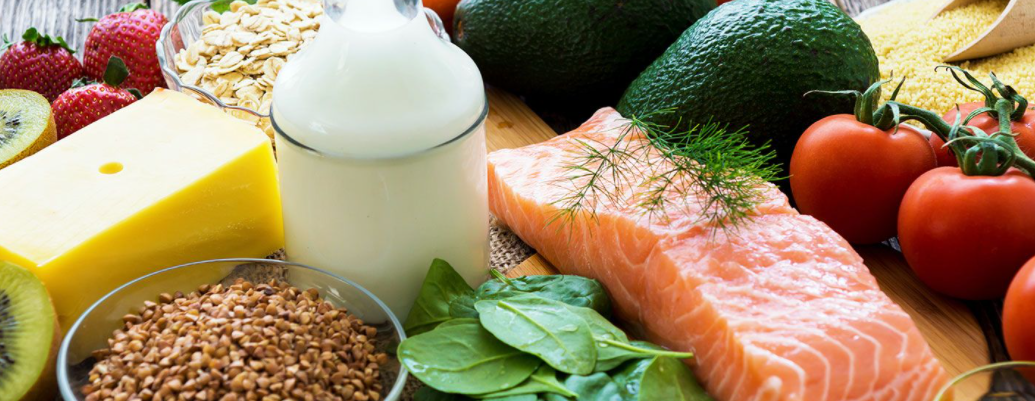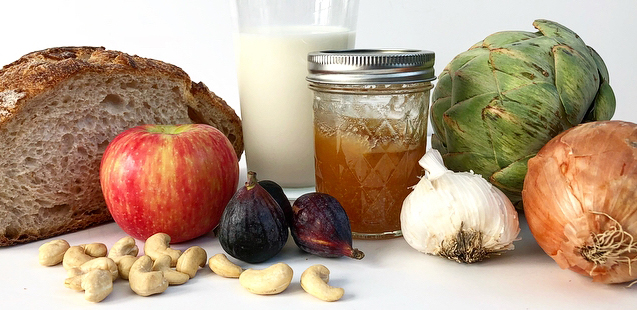Nutrient-dense foods encompass foods that are high in the essential vitamins and minerals humans need to survive and to thrive (9), (10), (11).
These foods are typically low in calories, but high in vitamins, minerals, complex carbohydrates, lean protein, and healthy fats (9), (10), (11).
How can you include more of these foods in your life? Change up how you think about meals and snacks. At the next meal you have, see if your plate contains protein, healthy fats, and fiber, for example. This is an excellent way to start your journey to better eating.
Then, once you tackle those food groups, you can start branching out into more nutrients. Soon you will be asking yourself, does my plate have any omega 3s, vitamin A, D, or B vitamins?
Summary: Nutrient-dense foods are high in essential vitamins, minerals, complex carbohydrates, lean protein, and healthy fats. Eating more nutrient-dense foods is helpful for both disease prevention and management.
Table of Contents
Most Nutrient-Dense Foods
There are many nutrient-dense foods to add to your diet. There is sure to be something on this list that you enjoy, or you can even start incorporating it into your routine. Check out the comprehensive list below of the most nutrient-dense foods out there, and see if you can start including them into your daily diet soon.
1. Seaweed
Seaweed is often not a part of the typical food groups, especially when it comes to the Standard American Diet (SAD). But there are many reasons why it should be.
These simple algae are full of nutrients, minerals, and antioxidants that can help improve your overall health. Some include a high amount of iodine, vitamin A, E, K, and essential B vitamins like folate. They are also an excellent source of calcium, zinc, and potassium (12), (13).
Because of its powerful nutrient profile, seaweed can help protect against heart disease (1), brain damage (2), and more (14). It can be extremely easy to add to your diet, too. There are tons of seaweed snacks available in flavors like sea salt, sweet onion, and more. Try some new snacks out or make yourself a seaweed salad to reap the health benefits.
Summary: Seaweed has been shown to protect the heart and brain, and help the body fight inflammation. Seaweed snacks are a great option to try if you would like to add seaweed to your diet.
2. Sardines
There is a reason sardines are often known as potent brain food. Sardines can even reduce or delay the onset of developing Alzheimer’s disease (3).
That is because they are full of omega-3 fatty acids in just an extremely small serving size. Sardines are also an excellent source of protein, healthy fats, vitamin B12, and vitamin D, to name a few (15).
If you don’t like the taste of sardines, there are plenty of ways to get the fishiness right out. Find a new recipe like pasta con sarde, which is an Italian and tasty way to add more nutrition in your diet.
Summary: Sardines are rich in omega-3 fatty acids, protein, vitamin B12, and vitamin D in just one small serving. Use them in your favorite pasta dishes or as a pizza topping.
3. Salmon
Salmon is another fatty fish that can significantly help your overall health due to its high nutrient profile (16), (17).
This nutrient-dense food has tons of omega 3 fatty acids, protein, essential B vitamins, selenium, and powerful antioxidants like astaxanthin. Astaxanthin can help to promote muscle recovery (4) and even prevent sunburn (5).
Salmon has potent health benefits from promoting heart health to enhancing brain function (20) and more (17), (18), (19). You can buy salmon frozen, fresh, or even canned. Get the many health benefits from this fish in any of these ways.
Summary: Salmon is very nutritious, containing tons of omega-3 fatty acids, protein, essential B vitamins, selenium, and powerful antioxidants. Add this heart and brain healthy food to your diet through fresh, frozen, or canned forms.
4. Spinach and Kale
Leafy greens like spinach and kale are highly nutritious. They are particularly high in vitamin K, which is a strong anti-inflammatory compound that helps to promote cellular health and prevents blood clots (6), (21).
Kale and spinach have tons of disease-fighting phytonutrients (21), along with many other essential vitamins and minerals like vitamin A, C, and even plant-based omega-3 fatty acids (22).
For the most part, kale and spinach are OK for everyone, but there is some restriction. Spinach is extremely high in oxalates, so it can have negative effects for those with or prone to kidney stones (23). Far too much kale can cause digestive issues for some, although it is rare.
Summary: Spinach and kale are both packed with vitamin A, K, C, plant-based omega-3 fatty acids, fiber and antioxidants. Sauté spinach or kale in oil for a quick side dish, or make a tasty salad with berries, sliced almonds, and feta cheese.
5. Whole Grains
Whole grains are extremely high in quite a few essential B vitamins like folate, thiamine, and niacin. They also have a decent amount of zinc, iron, magnesium, and protein (24), (25), (26).
Whole grains such as oats, barley, farro, millet, and more, are a part of the complex carbohydrates food group that is essential for everyone’s health (24), (25), (26).
There are some people who need to be extra careful when adding whole grains to their diet. People with celiac disease cannot have gluten, so it is important to find gluten-free options to whole grains, which are out there. Make sure to include whole grains in your diet in whatever way works best for you.
Summary: Whole grains are rich in essential B vitamins folate, thiamine, and niacin. They are also high in fiber, zinc, iron, magnesium, and protein. Oats, barley, farro, millet, wild rice, and rye are a few examples.
6. Quinoa
Quinoa is a part of the whole grain family, but its powerful nutrient profile makes it necessary to call out (27). It is one of those whole grains that is acceptable for everyone because it is gluten-free (30), (31).
It’s an excellent protein and amino acid option for vegans and vegetarians because it’s only of the only plant-based foods with all nine essential amino acids that meat has (28), (29).
Quinoa is also full of essential B vitamins that are often only found in animal foods, fiber, zinc, iron, potassium, calcium, and magnesium. Grab some pre-rinsed quinoa if you want to add some plant-based nutrition to your life (32).
Summary: Quinoa is a whole grain and powerful food containing tons of nutrients. It is rich in protein and amino acids, great for vegan and vegetarian diets. Try a quinoa breakfast bowl in place of oatmeal, or swap rice with quinoa in your favorite dishes.
7. Walnuts
Walnuts are another mighty brain food that is a great option for most. They are rich in omega-3 fatty acids, potassium, zinc, iron, and even unsaturated fats (33).
Plus, the list is not over. They are also an excellent food that helps you absorb key nutrients better. Walnuts can help you better absorb essential nutrients like vitamins A, D, E, and K.
Add some walnuts to your life easier through smoothies, acai bowls, or even just your morning oatmeal or yogurt.
Summary: Walnuts are highly nutritious containing omega-3 fatty acids, potassium, zinc, iron, and healthy fats. This brain and heart healthy food goes well in smoothies, oatmeal, yogurt, salads, or eaten plain as a snack.
8. Blueberries and Strawberries
Berries like blueberries and strawberries are full of heart-healthy antioxidants that can promote heart health and much more (34), (36).
The rich blue color in blueberries comes from the long list of antioxidants it provides. They are also an excellent source of potassium, magnesium, calcium, vitamin C, and folate (35).
Strawberries’ bright red color is one to appreciate, too. They get their bright red color from the flavonoids called anthocyanins. Flavonoids like this have natural anti-inflammatory benefits in the body. They are also rich in vitamin C, magnesium, phosphorus, and more (34).
Summary: Blueberries and strawberries are rich in heart-healthy antioxidants, fiber, potassium, magnesium, calcium, vitamin C, phosphorus, and folate. These anti-inflammatory foods are perfect for an oatmeal or cereal topping, or can be eaten plain as a snack.
9. Cantaloupe
Many fruits are great sources of a whole slew of nutrients, but cantaloupe is particularly high in a wide variety.
They have ample amounts of vitamins A, C, K, potassium, magnesium, calcium, and many different antioxidants. Antioxidants are necessary to eat, ideally in your daily diet (37). That’s because they help to decrease inflammation in the body, helping to prevent many chronic diseases.
Grab some cantaloupe to get the many health benefits, along with their refreshing taste.
Summary: Cantaloupe is full of vitamins A, C, K, potassium, magnesium, calcium, and many antioxidants. Cantaloupe is a tasty fruit that goes well in salads, smoothies, or eaten plain as a snack.
10. Brussel Sprouts
There is a reason mom always makes you eat all your Brussel sprouts. They are one of the most nutrient-dense foods on the planet.
Full of vitamins A, C, K, folate, fiber, calcium, and more, Brussel sprouts are a great vegetable to start eating. This cruciferous vegetable is excellent with your favorite protein, whether it’s plant-based quinoa or lean meat (38).
Add some Brussel sprouts to your next meal for some extra nutrition.
Summary: Brussel sprouts are one of the best nutrient-dense foods, containing vitamins A, C, K, folate, fiber, calcium, and much more. It pairs well with any dish, and is especially tasty when roasted in the oven with olive oil, salt, and pepper.
11. Sweet Potato
Sweet potatoes are a great starchy vegetable to swap with white potatoes here and there. That is because sweet potatoes are full of additional vitamins and minerals that white potatoes don’t have (39).
White potatoes are still nutritious, but sweet potatoes are a rich source of beta carotene and vitamin A. That’s where they get their bright orange color. Beta carotene and vitamin A help to promote eye health, less inflammation, and much more (39).
They are also high in vitamins B6, C, potassium, and disease-fighting antioxidants (39).
Summary: Sweet potatoes are starchy vegetables with a high nutrient profile, containing vitamins B6, C, potassium, fiber, beta carotene, and much more. Swap regular potatoes every once in a while with sweet potatoes for a nutrient boost.
12. Mushrooms
Mushrooms are a great option for your diet, especially if you follow a strict vegan diet. They are high in essential B vitamins, magnesium, zinc, copper, potassium, and more (40).
Many vegans or vegetarians do not get an adequate amount of B vitamins, because they are mainly found in animal foods. That’s why mushrooms are great to add to your diet.
Other mushrooms such as lion’s mane, reishi, chaga, cordyceps, and more, are also extremely healthy for brain health, memory, and they are great to boost your immune system (7) (8).
Summary: Mushrooms are packed with essential B vitamins, magnesium, copper, potassium, and fiber. This is a great food for vegan or vegetarian diets because of its high B vitamin profile. Mushrooms go well in soups, stews, salads, or tossed into a tasty morning omelet.
13. Beef Liver
The liver is the main part of the cow that is the most nutrient-dense. The liver is high in tons of vitamins and minerals like vitamin A, zinc, selenium, many B vitamins, protein, and more (41).
Many cannot tolerate eating the liver because of its specific consistency and taste. But there are other ways to eat the liver without tasting it so much. Pate is a popular dish that is full of the liver, for example.
You can also enjoy the health benefits of the liver through a few pieces of beef liver jerky for easy nutrition, too.
Summary: Beef liver is packed with nutrients. Vitamin A, zinc, selenium, B vitamins, and protein are a few to name. Beef liver jerky is a great option for those who don’t like the taste of traditional beef liver dishes. Consume the right portion because it is higher in cholesterol.
14. Onions
Onions are a robust anti-inflammatory food that can assist with digestion, heart health, and it can even lower cholesterol (42).
This powerful vegetable is full of tons of nutrients like fiber and folate, both of which are essential for optimal functioning in the body. They even have tiny amounts of protein and fat.
Add some onions to your next omelet, burger, salad, and much more. They can easily go on any food. You can even pickle red onions for a different flavor that goes well in many meals.
Summary: Onions are very nutritious and helpful for digestion, heart health, and lowering cholesterol. It contains high amounts of fiber and folate. Onions are perfect for every meal because of its high flavor profile. Use fresh as often as possible to reap the most health benefits.
15. Garlic
Garlic is a nutrient-dense antibacterial and antimicrobial food that helps to boost your immune system, and more (43), (44).
It is extremely rich in vitamin C, B6, and manganese, to name a few. Garlic is a great flavor booster for many meals, and easy to add, too (44).
If you do not like to cut the garlic, grab some precut garlic soaked in olive oil to start. It’s a great way to get started with a healthy diet while giving you back a few extra minutes to your day.
Summary: Garlic contains antibacterial and antimicrobial properties, as well as vitamins C, B6, and manganese. Garlic is a big flavor booster for every meal. Use it often, especially fresh, for optimal health.
Conclusion
Many healthy foods are full of beneficial nutrients like vitamins and minerals that significantly help to promote better health. This is a list of some of the highest nutrient-dense foods, but you should always include a plethora of nutritious foods in your diet (9), (10), (11).
Nutrient-dense foods, especially fruits, are in season at different times of the year, so keep that in mind. Getting a wide range of vitamins and minerals is necessary to maintain a healthy body and mind.
Try to add some of these nutrient-dense foods into your diet today to get the health benefits fast.




